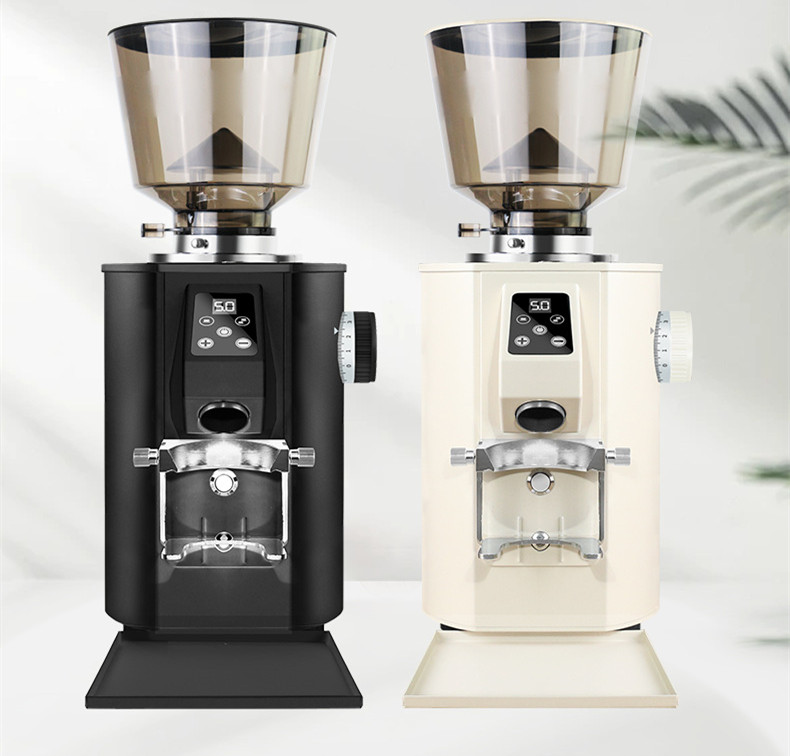How to Enhance the Commercial Value of Coffee Through Grinding Adjustments on Coffee Grinders
Precision Grinding for Diverse Brewing Methods
The relationship between grind size and brewing method is the cornerstone of commercial coffee quality. Fine-tuning grind settings to match specific brewing techniques unlocks unique flavor profiles, enabling businesses to cater to varied consumer preferences. For espresso, a fine grind creates the necessary resistance for high-pressure extraction, producing a concentrated shot with a rich crema layer. Conversely, French press requires a coarse grind to prevent over-extraction during prolonged steeping, resulting in a clean, full-bodied brew. Drip coffee makers benefit from medium-grind particles that balance extraction speed and flavor clarity, while cold brew demands an extra-coarse grind to minimize bitterness during extended cold-water contact.
Grind Consistency as a Quality Indicator
Uniform particle size ensures even extraction, which is critical for commercial consistency. Inconsistent grinds lead to uneven flavor development, with fine particles over-extracting and coarse particles under-extracting. This disparity manifests as a muddled taste profile, reducing perceived value. Advanced grinders with precision-engineered burrs minimize this risk by producing uniform particles, even at high volumes. For example, conical burr designs excel in creating consistent medium-to-fine grinds for pour-over methods, while flat burrs are preferred for espresso due to their ability to generate uniform fine particles.
Customization for Bean Origin and Roast Level
The origin and roast level of coffee beans significantly influence optimal grind settings. Light-roasted, high-altitude beans from Ethiopia or Kenya require a finer grind to compensate for their density and acidity, ensuring full extraction of floral and citrus notes. Medium-roasted Central American beans, with balanced sweetness and acidity, thrive on medium grinds that highlight their caramel and nutty undertones. Dark-roasted Indonesian beans, characterized by low acidity and smoky flavors, perform best with coarse grinds to prevent excessive bitterness. By adjusting grind settings based on bean characteristics, businesses can showcase the unique terroir of each origin, elevating the coffee’s perceived value.
Operational Efficiency Through Grinding Optimization
Grinding adjustments directly impact workflow efficiency, a key factor in commercial profitability. Automated grinders with programmable settings reduce preparation time and minimize human error, allowing baristas to focus on customer interaction and drink customization. For instance, a grinder with preset grind profiles for espresso, drip coffee, and French press eliminates the need for manual adjustments between orders, streamlining service during peak hours.
Reducing Waste and Cost
Over-grinding or under-grinding coffee beans leads to unnecessary waste, inflating operational costs. Fine-tuning grind settings ensures optimal extraction rates, maximizing the use of each bean. For example, a slightly coarser grind for espresso may reduce channeling—a common issue where water bypasses coffee grounds, leading to under-extraction—thereby improving yield per dose. Additionally, grinders with adjustable dose weights allow precise measurement of coffee grounds, preventing overuse and ensuring consistent portion control.
Enhancing Equipment Longevity
Proper grind adjustments also protect grinder components from premature wear. Fine grinds generate more heat and friction, accelerating burr degradation if used excessively. By alternating between grind sizes based on demand—using coarser settings for bulk brewing and finer settings for specialty drinks—businesses can extend the lifespan of their equipment. Regular maintenance, such as cleaning burrs and calibrating grind settings, further ensures optimal performance and reduces downtime.
Emotional Connection Through Grinding Customization
In the competitive coffee market, emotional value often drives consumer loyalty. Grinding adjustments enable businesses to create personalized experiences that resonate with customers. For example, offering a “grind-on-demand” service, where beans are freshly ground to the customer’s preferred brewing method, adds a layer of exclusivity. This practice not only enhances flavor but also positions the business as a specialist committed to quality.
Educating Customers on Grind Science
Sharing knowledge about grind settings and their impact on flavor fosters trust and engagement. Baristas can explain how a finer grind intensifies espresso’s body or how a coarser grind preserves cold brew’s natural sweetness. Visual aids, such as grind size comparison charts or tasting flights featuring the same bean ground differently, help customers appreciate the nuances of grinding. This educational approach positions the business as an authority, encouraging repeat visits and word-of-mouth referrals.
Supporting Sustainability Narratives
Grinding adjustments can align with broader sustainability goals, appealing to eco-conscious consumers. By optimizing grind settings to reduce waste and energy consumption, businesses can market their commitment to environmental responsibility. For instance, promoting the use of coarse grinds for cold brew, which requires less energy than hot brewing methods, reinforces a sustainability narrative. Similarly, highlighting the reduction in bean waste through precise grinding adjustments can attract customers who prioritize ethical consumption.
By leveraging grinding adjustments to enhance quality, efficiency, and emotional engagement, coffee businesses can elevate their commercial value in a competitive market. Precision in grind settings, operational optimizations, and customer-centric customization collectively create a compelling value proposition that drives profitability and brand loyalty.


